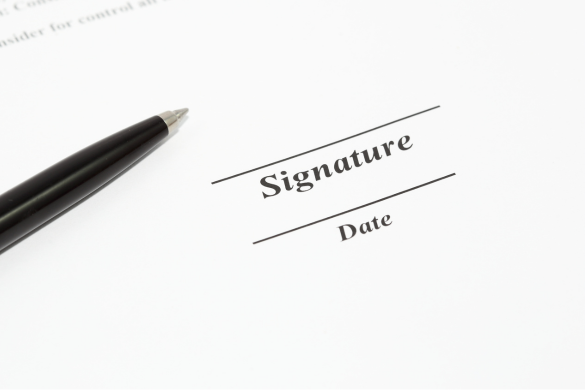If you’re a healthcare provider or medical professional with a DEA registration, you already know how important it is to your ability to practice. Without it, you lose the legal authority to prescribe, administer, or dispense controlled substances, and that can be career-ending.
Unfortunately, we often hear from clients after they’ve signed a form surrendering their registration, not realizing what they were giving up or how permanent that decision can be. One form in particular, DEA Form 104, carries serious consequences, and we want to make sure you understand what it is and why you should never sign it without legal advice.
What Is DEA Form 104?
DEA Form 104 is officially titled the “Voluntary Surrender of Controlled Substances Registration”. It’s a short document that, once signed, allows the DEA to cancel your registration on the spot. In the eyes of the government, it’s a voluntary action, but in practice, it often doesn’t feel that way.
DEA agents may show up at your office or home during an investigation and strongly encourage you to sign the form. They might suggest that cooperating will help your case or that things will “go easier” if you comply. But what they’re really asking you to do is permanently give up your DEA registration—without a hearing, without legal counsel, and without fully understanding what comes next.
Why You Shouldn’t Sign A DEA Resignation Form on the Spot
Signing DEA Form 104 is a major decision. And once you’ve signed it, reversing that decision is extremely difficult, if not impossible.
Here’s why you should pause before putting pen to paper:
- It’s final – Once submitted, your DEA registration is gone. You can’t simply undo the decision the next day.
- It can affect your license – Losing DEA registration can trigger separate investigations by your state medical or pharmacy board.
- It hurts your defense – Signing can be seen as an admission or waiver that makes it harder to fight allegations later.
DEA agents often apply pressure to sign quickly. But you don’t have to. And legally, you’re not required to sign anything on the spot.
How to Respond If the DEA Pressures You to Sign
If a DEA agent asks you to sign Form 104, or any legal document, take a step back. Remain respectful and professional, but make it clear that you want to speak with an attorney before signing anything.
Here’s a simple script you can use:
“I understand you’re asking me to sign this, but I need to consult with my attorney before I make any decisions.”
That’s it. You have every right to say that. Don’t let the pressure of the moment take away your ability to protect your license, livelihood, and reputation.
How The Callahan Law Firm Can Help
At The Callahan Law Firm, we’ve helped countless healthcare professionals navigate complex and high-stakes interactions with the DEA. Whether you’re under investigation, facing an audit, or being asked to surrender your registration, we know how to respond, what to say, and how to protect your future.
Our team of experienced DEA attorneys can:
- Intervene before you sign anything.
- Help negotiate outcomes that preserve your registration, when possible.
- Defend you in DEA investigations or related licensing board matters.
The earlier we’re involved, the more options we typically have to help. If you’ve already signed a DEA 104, contact us immediately, we may still be able to assist.
Think Twice about DEA Voluntary Surrender
When your career is on the line, don’t go it alone. If DEA agents show up, or if you’ve been contacted in any way, do not sign a DEA Form 104 without first speaking to an attorney. We’re here to help. Call The Callahan Law Firm today for confidential guidance and strong, experienced representation.




